Eating healthy when pregnant gives you and your baby the strength needed for good health.
Here are a few things you can do to eat healthy while pregnant:
- Choose a variety of foods every day from the four food groups, including country food
- Eat foods from at least three food groups in each meal
- Eat at least one dark green and one orange vegetable every day
- Choose high fibre, whole grain products like oatmeal and whole grain breads and cereals
- Eat at least two servings of meat and meat alternatives each day. Meat, fish, poultry, eggs, beans, and peanut butter are all good choices.
- Drink plenty of water
- Be active—choose activities you enjoy
When should I talk to my health care provider about nutrition during pregnancy?
Talk to your health care provider if you have:
- Diabetes or gestational diabetes
- Low levels of iron in your blood
- Had a baby in the past with a low birth weight
- A vegetarian or vegan diet
Iron
Iron is important for mothers and babies. When pregnant, mothers need to get enough iron so the baby can grow properly and have their own iron when they are born. Pregnant or breastfeeding moms may consider a pre-natal vitamin with iron. Include iron-rich foods in your diet.
- Country meats—caribou, seal, walrus, muskox, clams, and mussels
- Meat, fish, poultry
- Dried beans, peas, lentils
- Breads and cereals
- Dark leafy greens—seaweed, spinach
Is it recommended to avoid certain foods or drinks during pregnancy?
- It is safest not to drink alcohol or consume any drugs while pregnant. If you need support with this, talk to a trusted friend, family member, Elder or health care provider. For anonymous support, you can also call the Kamatsiaqtut Helpline at 1-800-265-3333.
- Do not eat raw or undercooked store bought meat or eggs, or raw seafood. They may have bacteria that can harm the fetus. When cooking meat and eggs, make sure they are cooked through.
- Limit caffeine to less than 200 mg a day—two cups of coffee or four cups of tea.
- Limit foods and drinks high in sugar, salt, or saturated fats—such as chips, pop, candy, and chocolate.



